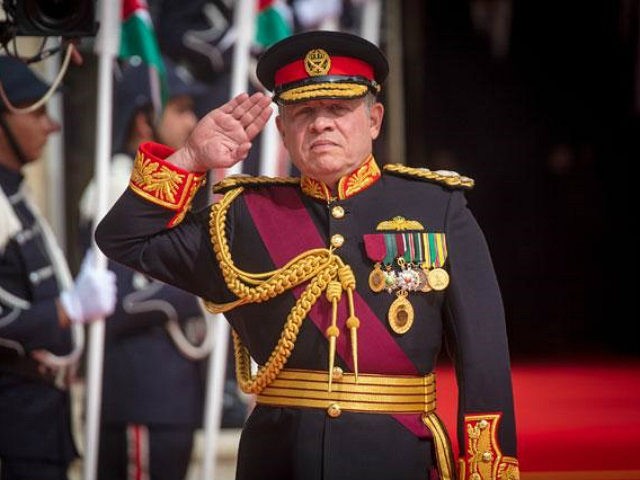Jordan’s King Abdullah is scheduled to begin a visit Monday to the United States where he is expected to meet with key officials from President Donald Trump’s administration and members of Congress, announced the Jordanian embassy.
The embassy did not say whether the Jordanian king would meet with President Trump.
King Abdullah’s visit will mark the first time that an Arab leader will hold discussions with the Trump administration.
Jordan is bordered by war-torn Iraq and Syria. The Arab country hosts over a million refugees from Iraq, Syria, and various other countries.
Jordan has been overwhelmed by the influx of refugees who have been displaced by the ongoing U.S.-led coalition war against the Islamic State (ISIS/ISIL) in the Middle East. The Arab nation is part of the anti-ISIS alliance.
The announcement from the Jordanian embassy in Washington D.C. on Friday came just before news reports surfaced that President Trump signed executive orders to impose a temporary ban on most refugees from, and a suspension of visas for, citizens of Syria, Iraq, Iran, Libya, Somalia, Sudan, and Yemen.
Until a more aggressive vetting process is put in place, President Trump’s executive order would prohibit the entry of refugees into the United States, except for members of religious minorities escaping genocide and persecution, such as Christians.
“His Majesty King Abdullah II will start a working visit to the US next week,” the Jordanian embassy wrote on Twitter Friday.
January 23, Jordan’s foreign ministry wrote on Twitter: “Jordanian-US ties: strong historic we look forward to working w/ the new administration to confront common challenges.”
Trump told ABC News earlier last week that he would “absolutely do safe zones in Syria” for refugees fleeing violence, adding that Europe had made a mistake by allowing millions of Syrian refugees onto its soil.
“The creation of safe zones would ratchet up U.S. military involvement in Syria and mark a major departure from former President Barack Obama’s more cautious approach,” notes Reuters. “Increased U.S. or allied air power would be required if Trump chose to enforce ‘no fly’ restrictions, and ground forces might also be needed to protect civilians in those areas.”
“Abdullah, who has a role as custodian of the Muslim sacred sites in Jerusalem, has also been key to efforts by the United States to broker a peace deal between the Israelis and Palestinians,” it adds. “Since Israel’s creation in 1948, Jordan has absorbed waves of Palestinian refugees, as well as fugitives from the 1975-90 civil war in Lebanon and from Iraq.”
Trump vowed to move the U.S. embassy in Israel from Tel Aviv to Jerusalem while campaigning.
Echoing the Palestinian Authority’s supreme Sharia judge Mahmoud Al-Habbash, prominent Shiite Iraqi cleric and powerful militia leader Muqtada al-Sadr said relocating the U.S. embassy to Jerusalem would amount to a “declaration of war” against Muslims.
The control of Jerusalem is one of the problematic issues in resolving the Israeli-Palestinian conflict, with each side asserting claims over the holy city.
On Wednesday, the Jordanian King held discussions with Russian President Vladimir Putin on bilateral relations and efforts to bring peace to Syria.

COMMENTS
Please let us know if you're having issues with commenting.